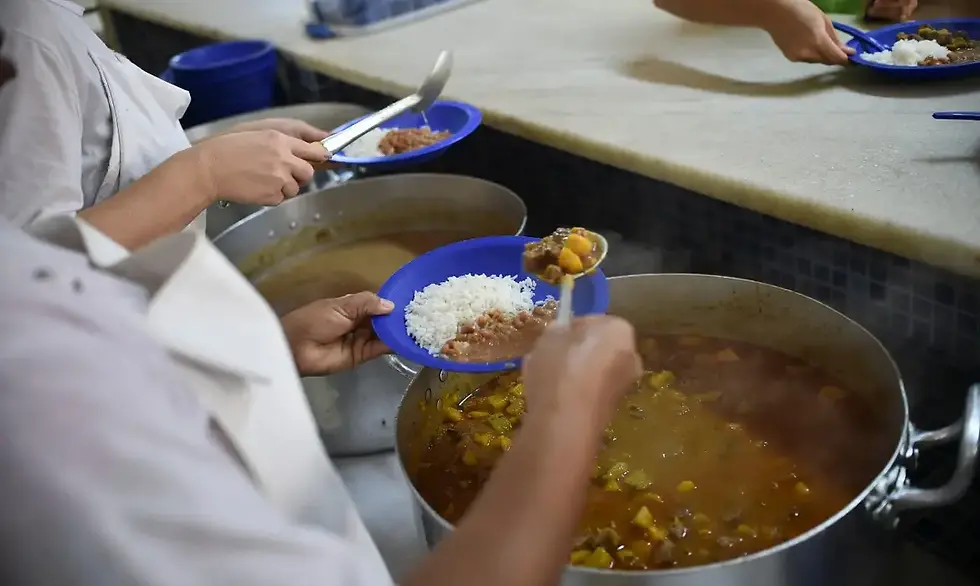Brazil off the Hunger Map? The Partial Victory of a Country That Still Fails Its People. OPINION. July 29, 2025
- Ana Cunha-Busch
- Jul 28, 2025
- 3 min read

Brazil off the Hunger Map? The Partial Victory of a Country That Still Fails Its People
By Claudia Andrade
Today, July 28, 2025, Brazil celebrates what seems like momentous news: we have officially left the UN Hunger Map. A symbolic, important milestone that represents, yes, the effort of many hands—public policies, social actions, family farming, income transfer programs, popular movements, and grassroots organizations.
But it is also today that we feel the weight of contradiction.
Brazilians celebrate this victory while dealing, on the same plate, with rising food prices, rising cooking gas prices, relentless energy prices, and now, a US tariff hike that promises to further pressure the global economy and drive up the cost of living, especially in developing countries like ours. Official figures say we've overcome extreme hunger—but all you have to do is take to the streets to see that it remains in the eyes of those choosing between lunch and dinner. Between paying for transportation and buying bread.
Inflation has once again become a silent protagonist in everyday life. Meat has disappeared from our plates. Beans have become a luxury on many tables. Food exists—but is it affordable? Sustainable? Nutritious? Guaranteed as a right, not a favor?
And here comes a reflection I carry closely: I, who work with SDG 6, who bring technologies for access to clean water to communities throughout Brazil, ask with sincerity and pain:
What country is this that has left the hunger map, but where millions still don't even have water to drink?
Yes, every advance should be celebrated. And it's good that we've taken a step.
But there's still an entire country with bare feet treading on dry ground, where sanitation, regular energy, income, quality schools, and dignity are lacking.
Justice is lacking.
Brazilians aren't just hungry for food. They're hungry for security. For respect. For decent work. For access to healthcare, housing, and clean water. They're hungry for rights that the State insists on denying or treating as handouts.
What's coming with global instability and rising costs—driven by external economic decisions like the US tariff hike—is more exclusion. More vulnerability. More children are going without dinner, not because they're on the hunger map, but because they're off the priority map.
We cannot accept a narrative that complaces. Brazil's exit from the Hunger Map is important, but it cannot be a smokescreen for the other ills that scream in this country.
The truth is that vulnerability has changed its appearance, but it hasn't gone away.
It now walks around with the badge of informal unemployment, with the empty backpacks of students from the outskirts, with the overdue electricity bills of single mothers, with the dry taps of rural residents.
Hunger isn't over. It's simply learned to hide behind statistics.
Because a country only truly leaves the hunger map when it also leaves the neglect map—and this neglect isn't just the government's fault. It's also the fault of companies that exploit without giving back, of people who become complacent, of institutions that turn a blind eye. We all have a responsibility. Transformation requires a collective effort, with awareness, courage, and action. And if Brazil celebrates one achievement today, tomorrow it must roll up its sleeves for the next. Because while the US tariff hike puts pressure on the global economy and further increases the cost of living, especially for the poorest, we need to be vigilant and united so that the price of major decisions doesn't fall, once again, on those who already bear too much.
#SDG1 No Poverty
#SDG2 Zero Hunger and Sustainable Agriculture
#SDG6 Clean Water and Sanitation
#SDG10 Reduced Inequalities
#SDG12 Responsible Consumption and Production
#SDG16 Peace, Justice and Strong Institutions
#SDG17 Partnerships for the Goals
@cauvic2





Comments